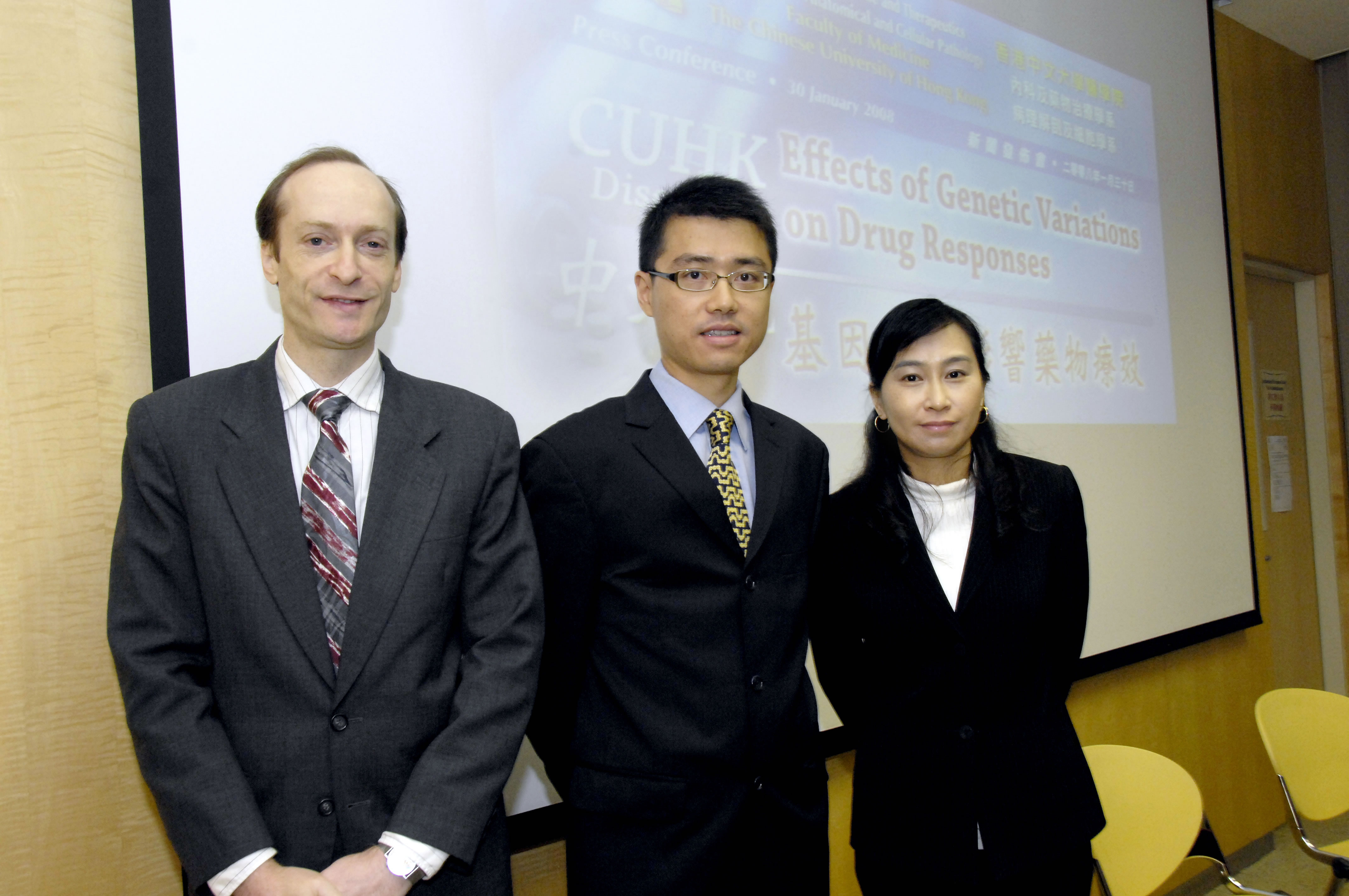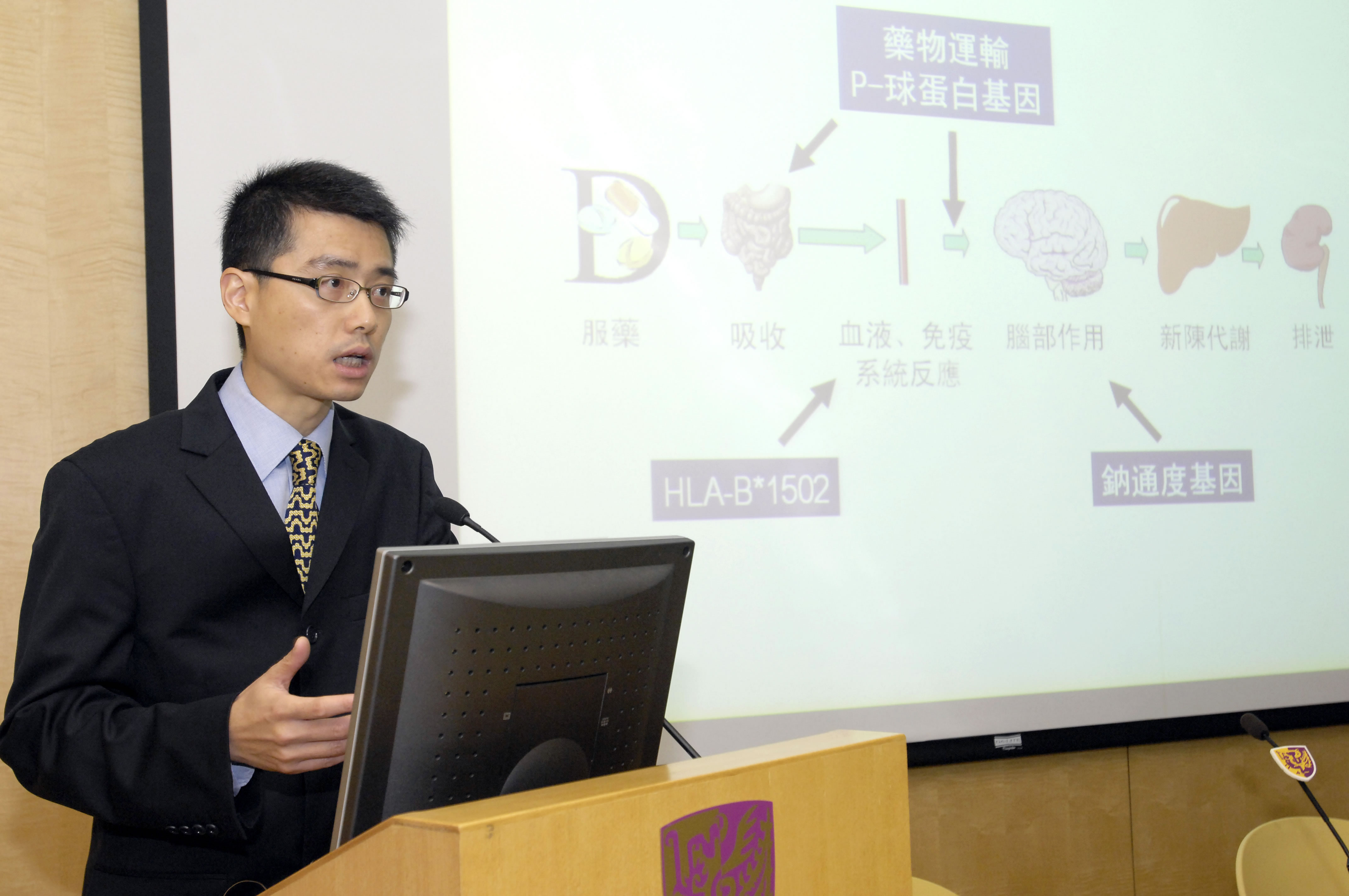CUHK
News Centre
CUHK Discovered Effects of Genetic Variations on Drug Response
It has been known to doctors for many years that different people may have widely variable responses to a drug used to treat a particular disease. The range of responses spans from highly effective to completely ineffective despite high doses being given. In addition, some patients develop severe side effects on even minimal doses. The reasons for this wide variation in drug response are not well understood, but more and more scientists are realizing that inborn genetic differences may be an important reason. This is because the steps involved in how the human body handles a drug (absorption, distribution, metabolism, excretion) and how a drug affects the human body (desirable and undesirable effects) may be under genetic control.
An understanding of the genetic basis for variation in drug response could enable doctors to use information on genetic makeup of an individual to predict the likely response to a particular drug so that drug use can be “personalized”. The ultimate goal is to improve treatment efficacy and safety. Although research in this field has existed for nearly 50 years, it has begun to impact mainstream clinical practice only recently due to advances in our knowledge of the human genome and in technology.
A prime example is the use of antiepileptic drugs which are commonly used to treat epilepsy, neuropathic pain, and bipolar disorder (a type of mood disorder). According to local research in 2003, at least 30,000 people in Hong Kong have epilepsy, and many more suffer from neuropathic pain and psychiatric disorders. These conditions can be treated successfully with medications, but finding the right drug for individual patients often requires much trial and error.
Recent research done by the Department of Medicine and Therapeutics and the Department of Anatomical and Cellular Pathology of the Faculty of Medicine at The Chinese University of Hong Kong (CUHK), in collaboration with local hospitals, has shown that genetic variations can affect the effectiveness of these drugs. In addition, some patients develop life-threatening skin allergies to some antiepileptic drugs. Certain inborn genetic variation of the immune system can increase risk 72-fold. Such reactions, occurring within a few weeks of starting the drugs, are rare (1 in 1,000 to 10,000) but fatal in 30% of the patients. Surviving patients may have long-term complications.
The research showed that the predisposing genetic variation is common in Chinese and other Asians (present in 1 in 5 people in Hong Kong) but rare in Caucasians, which may explain why such severe allergies are more common among the former populations. The finding, along with reports from other countries, has prompted the US Food and Drug Administration to issue an alert in December 2007. The alert advises testing for the genetic variant in Asian patients before the drugs are prescribed, and avoiding the drugs if the patient is found to have the predisposing genetic variation. The Faculty of Medicine is planning further studies to more clearly define the genetic factors influencing drug response so that patients may benefit from safer and more effective treatment.
(From left) Prof. Lawrence Baum, Assistant Professor, Department of Medicine and Therapeutics, CUHK; Prof. Patrick Kwan, Honorary Clinical Associate Professor, Department of Medicine and Therapeutics, CUHK; and Prof. Margaret Ng, Professor, Department of Anatomical and Cellular Pathology, CUHK







